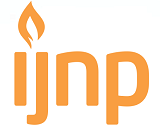MENINGKTKAN MOTIVASI BELAJAR MAHASISWA KEPERAWATAN MELALUI METODE PEMBELAJARAN COOPERATIVE LEARNING
DOI:
https://doi.org/10.18196/ijnp.v2i2.2083Abstract
One of factors that determine student success in learning is the selection of appropriate learning method. Learning methods that are not boring for the students is one learning method that can improve student learning motivation that ultimately might improve student achievement. Cooperative learning is one of the methods that can be applied. The division of a group of shared characteristics of students are the hallmark of this learning method. This study aimed to do a review article to know the eff ectiveness of learning cooperative learning to enhance student motivation to expect any impact rising encountered during the learning process of cooperative learning. A search the article in Proques on articles related to cooperative learning on student motivation by keyword «eff ects of cooperative learning on student motivation and achievment» found 3079 articles selected then the 2010- 2015 with the same keywords «eff ects of cooperative learning on student motivation and achievment «is found 543 then we select the article to 15 articles. Cooprerative learning is one method that can be applied in the learning nursing process. An increase in student motivation in learning have a positive impact on the achievement of the mahasiswats. Obstacles are often encountered any member of the group who did not participate in the task. The efectifi tas cooperative learning on student learning motivation that impact on achievement.
Keywords: Cooperative learning, motivation to learn, student achievement
References
Bulut, S. (2010). A cross-cultural study on the usage of cooperative learning techniques in graduate level education in five different countries. Revista Latinoamericana De Psicología, 42(1), 111-118.
Chin-Min, H., Shi-Jer, L., Chi-Chang, L., & Pei-Ling, W. (2014). Identification of dysfunctional cooperative learning teams and troubled individuals. British Journal Of Educational Technology, 45(1), 125-135. doi:10.1111/bjet.12004
Chin-Min, H. (2012). The Effectiveness of
Cooperative learning. Journal Of Engineering Education, 101(1), 119-137
Chin-minhsiung. (2010). Identification of Dysfunctional Cooperative learning
Teams Based on Students› Academic Achievement. Journal Of Engineering Education, 99(1), 45-54
Hsiung, C.(2010). An experimental investigation into the efficiency of cooperative learning with consideration of multiple grouping criteria. European Journal Of Engineering Education, 35(6), 679-692. doi:10.1080/0304 3797.2010.511149
Kim, J., Kim, M., & Svinicki, M. D. (2012). Situating Students’ Motivation in Cooperative learning Contexts: Proposing Different Levels of Goal Orientations. Journal Of Experimental Education, 80(4), 352-385. doi:10.1080/0022 0973.2011.625996
Law, Y. (2011). The effects of cooperative learning on enhancing Hong Kong fifth graders› achievement goals, autonomous motivation and reading proficiency.
Journal Of Research In Reading, 34(4), 402-425. doi:10.1111/j.1467-9817.2010.01445.
Megahed, M. M., & Mohammad, F. A. (2014). Effect of cooperative learning on undergraduate nursing students› self-esteem: A quasi-experimental study. Journal of Nursing Education and Practice, 4(11), 1. doi:http:// dx.doi.org/10.5430/jnep.v4n11p1
Ning, H., & Hornby, G. (2014). The impact of cooperative learning on tertiary EFL learners’ motivation. Educational Review, 66(1), 108-124. doi:10.1080/00131911.2013.853169
Ruth-Sahd, L. A. (2011). Student nurse dyads create a community of learning: proposing a holistic clinical education theory. Journal Of Advanced Nursing, 67(11), 2445-2454. doi:10.1111/j.1365-2648.2011.05690.
Salako, e. C., eze, i. R., & adu, e. O. (2013). Effects of cooperative learning on students knowledge and attitudes to multicultural education concepts in social studies. Education, 133(3), 303-309.
Servetti, S. (2010). Cooperative learning Groups Involved in a Written Error-Correction Task. European Education, 42(3), 7-25. doi:10.2753/EUE1056-4934420301
Schul, J. E. (2011). Revisiting an Old Friend: The Practice and Promise of Cooperative learning for the Twenty-First Century. Social Studies, 102(2), 88-93. doi:10.1080/00 377996.2010.509370
Zacharia, Z., Xenofontos, N., & Manoli, C. (2011). The effect of two different cooperative
Issue
Section
License
License
Articles published in the IJNP (Indonesian Journal of Nursing Practices) are licensed under a Attribution 4.0 International (CC BY 4.0) license. You are free to:
- Share — copy and redistribute the material in any medium or format.
- Adapt — remix, transform, and build upon the material for any purpose, even commercially.
This license is acceptable for Free Cultural Works. The licensor cannot revoke these freedoms as long as you follow the license terms. Under the following terms:
Attribution — You must give appropriate credit, provide a link to the license, and indicate if changes were made. You may do so in any reasonable manner, but not in any way that suggests the licensor endorses you or your use.
- No additional restrictions — You may not apply legal terms or technological measures that legally restrict others from doing anything the license permits.
Copyright
Authors who publish with IJNP (Indonesian Journal of Nursing Practices) agree to the following terms:
- Authors retain copyright and grant IJNP (Indonesian Journal of Nursing Practices) the right of first publication with the work simultaneously licensed under an Attribution 4.0 International (CC BY 4.0) that allows others to remix, adapt and build upon the work with an acknowledgment of the work's authorship and of the initial publication in IJNP (Indonesian Journal of Nursing Practices).
- Authors are permitted to copy and redistribute the journal's published version of the work (e.g., post it to an institutional repository or publish it in a book), with an acknowledgment of its initial publication in IJNP (Indonesian Journal of Nursing Practices).














